I’ve written here before about the quality of “I-want-to-read-it-osity” that some books have, a hard to define but easy to see quality which I am going to refer to as “grabbyness.” There are books you can pick up and put down and happily pick up again, and then there are books that seem to glue themselves to your brain, that utterly absorb you. There are books that are great when you’re halfway through them but that take work to get into. Right now, the kind you can put down and the kind that are hard to get into don’t cut it, because they’re hard to focus on while fretting. For me, grabbyness is a quality entirely orthogonal to actual quality. There are grabby books that are only OK and great books that are not grabby. It also has nothing to do with how ostensibly exciting they are, nor how comforting they are. There are just books that are grabby and books that are not. What I’m talking about is the power to bring you right into the story so that all you want to do is read more, and you forget entirely about the real world around you.
So here are some suggestions for books that grab you, for you to read in these difficult times. I’m trying to suggest a wide range of things, so that there might be some you haven’t read before—sometimes we want to re-read and comfort read, but sometimes we want new things that are sure to hold our attention.
Children’s Books and YA
First, for those of you with kids wanting distracting books and those of you who, like me, happily read books for all ages just the way I did as a kid:
• Gary D. Schmidt’s The Wednesday Wars and the sequel, Okay for Now. These are not genre, they’re historical novels about kids in the US in the 1950s going to school and growing up. The first one has great stuff about Shakespeare, and the second about Audubon. They’re just great. Huge thanks to Suzanna Hersey, whose tastes are incredibly congruent with mine, for recommending these to me.
• Ella Minnow Pea, a fascinating Ruritanian dystopian comedy by Mark Dunn. This is about an imaginary island off the coast of the US which reveres Nevin Nollop, the man who wrote the sentence “The Quick Brown Fox Jumps Over the Lazy Dog,” and when letters start falling off the memorial, they decide to do without the letters. This book is very funny and very clever too. Thanks to Gretchen McCulloch for reading this aloud to me on Discord, which was a great feat of pronunciation!
• Eleanor & Park by Rainbow Rowell, and after that, the rest of Rainbow Rowell. Eleanor & Park is about two geeky teenagers getting to know each other, and their differently difficult families, and it’s just perfect, and it has that “can’t put it down” quality. All her books are like that.
• Code Name Verity by Elizabeth Wein, a book about women pilots and spies in WW2 that does some incredibly clever POV stuff and is very powerful, but which also once caused me to miss my stop on the bus because I wasn’t paying attention to where I was.
Science Fiction and Fantasy
• Patrick Rothfuss’s The Name of the Wind. (You knew I was going to say that, didn’t you?) It’s fantasy, and it really does have a very compelling voice. I once picked it up to look up something for the re-read I was doing and accidentally read four chapters. And it has the advantage of being long and having a sequel, so once you are head-down into it, it will last you a long time.
• Nina Kiriki Hoffman—almost everything she has written, but start with A Red Heart of Memories because it’s especially grabby right up front. She’s writing Zenna Henderson-esque novels set in the real US but with families who have magic, which isn’t a genre that I often like, but she really makes it work.
• Ira Levin’s The Boys From Brazil, and again, pretty much all of Ira Levin. His work has that compelling quality. The Boys From Brazil is about cloning Hitler, and it’s really a compulsive read.
• Ada Palmer’s Terra Ignota series. This may not be grabby for everyone because of the style, which really works for me but not universally. If you try the sample chapters and you’re not grabbed, wait to read it another time. But if you are, these books are incredibly absorbing and all-consuming in addition to being great, and I highly recommend them.
• Arkady Martine’s A Memory Called Empire: Get past the first intro chapter and you will get so completely sucked in to the problems of these worlds that you’ll forget all about the real one. This is one of the very few books we’ve done for book club that absolutely everyone loved. No wonder it’s nominated for all the awards.
• J.R.R. Tolkien’s The Lord of the Rings, the book that could always reliably take me to Middle-earth until I’d memorized the whole thing—so that if you start a sentence, I can finish it. I can now only read it slowly. But if you haven’t already read it to death, this is the perfect time to read or re-read it.
• C.J. Cherryh’s Chanur books, beginning with Pride of Chanur—do not read out of order. Aliens and space stations par excellence, and again, utterly all-consuming.
• Lois McMaster Bujold’s The Warrior’s Apprentice and all the subsequent books in the Vorkosigan series. If you haven’t read them, this is your lucky day. They may look like MilSF, and they are, but they are also so much more: they are about family and home and integrity and reproduction. I’ve written about them a lot, they’ve won a ton of awards, they are very good, and also very, very, very readable.
• John Barnes’s A Million Open Doors and indeed, lots of Barnes. He does not write happy feel-good books, though AMOD is the closest he comes, but he has that spellbinding voice that means you want to keep on reading. I once re-read this on a very, very bad day, and it absolutely succeeded in removing me from myself. Not a comfort read, but it definitely worked.
• Rosemary Kirstein The Steerswoman and sequels—available inexpensively as ebooks. I’ve written about these, too, they’re about people trying to understand the world they live in using scientific methods, and they’re wonderful friendship-centered, science-centered, and grabby.
• Octavia Butler’s Clay’s Ark (and indeed most of her fiction, but I’d avoid the Parable books right now). Excellent SF, though somewhat pessimistic, impossible to put down.
My husband Emmet suggested Douglas Adams’s Hitchhiker books. I first encountered them as radio plays, and while I certainly find the books delightfully readable, I’ve never thought of them as must-read grabby. But the more I think about it, the more I think maybe they are and I never noticed because they’re so short I’d have read them in one sitting anyway.
He also suggested Lawrence Watt-Evans’s Ethshar books, starting with With a Single Spell, which almost made it into my “books where nothing bad happens” piece except that bad things happen on page one. Light, light fantasy, clever, and very readable in that good way. His Dragon Weather series also has that same thing.
Mainstream and Other Genres
• Jennifer Crusie writes genre romance, and she has that gift of the grab—I’d recommend starting with Welcome to Temptation, which connects to Faking It, which is my favourite of her books. But you can feel safe with anything of hers to suck you in and pull you along.
• Nevil Shute. Unfortunately I have no unread Nevil Shute, it’s all re-reads for me. But there’s something about his prose and his way of telling a story that really pulls me into it. If you haven’t read any, start with A Town Like Alice or Pied Piper. If you have read some, find the ones you’re lucky enough not to have read yet. Shute wrote some borderline SF, too.
• Donna Leon’s Brunetti series—start with the second one, Death in a Strange Country, because that’s where they start to be really great. I have the latest one unread and I am saving it.
• Peter Dickinson also wrote mysteries, and they’re all grabby in just the right way. Probably the best one to start with is A Perfect Gallows about an actor and a play being put on during WW2, or Hindsight, which also is about a wartime crime being investigated a long time afterwards.
• Noel Streatfeild—did you know her adult backlist are available very inexpensively as ebooks? I bought and read them all last year and I thought I was doing really well reading only one a month, but now I wish I’d saved one. However, they are there for others, and definitely things I read in one bite.
• Robert Graves’s I, Claudius and the sequel, Claudius the God: written in first person, utterly absorbing accounts of shenanigans in Ancient Rome.
• Mary Renault’s The Persian Boy and also everything else she ever wrote, but especially this one. Historical novels about Ancient Greece; this one is about Alexander the Great and it’s set in Persia.
Autobiographies
• The Autobiography of Benvenuto Cellini—I’ve written about this, too, I couldn’t put it down.
• The Autobiography of Benjamin Franklin: engaging in exactly the way I mean when I say grabby.
• Moab Is My Washpot by Stephen Fry, which I idly started reading one day, couldn’t stop, and bought the second volume the second I’d finished it.
Non-fiction
So people don’t often talk about unputdownable non-fiction… I don’t know why, because there is some, and non-fiction can sometimes work when stories do not.
• Don Kulik’s A Death in the Rainforest: How a Language and a Way of Life Came to an End in Papua New Guinea is one I read recently that I absolutely could not stop reading. Incredibly absorbing. I bought it because I was mildly interested and then found myself riveted.
• Kate Harris’s Lands of Lost Borders: This is a travel memoir about cycling the Silk Road, but it’s so well written and so full of thoughts and places, and so open and honest, that I couldn’t put this down either.
• Patrick Leigh Fermor’s A Time of Gifts is another travel book, this one about a trip young Paddy made in 1933, walking to Constantinople. It’s funny and charming and full of incident, and an absolute joy to read.
Graphic Novels
Not my thing, but Ada Palmer recommends Kurt Busiek’s Astro City for its unputdownability. Grace Seybold says she devoured Ryan North’s Squirrel Girl as soon as it came out. Vicki Rosenzweig and a bunch of other friends all recommend Ursula Vernon’s Digger as not only very readable and also gentle and fun.
And I’d welcome more suggestions!
Jo Walton is a science fiction and fantasy writer. She’s published two collections of Tor.com pieces, three poetry collections, a short story collection and thirteen novels, including the Hugo- and Nebula-winning Among Others. Her fourteenth novel, Lent, was published by Tor in May 2019. She reads a lot, and blogs about it here irregularly. She comes from Wales but lives in Montreal. She plans to live to be 99 and write a book every year.










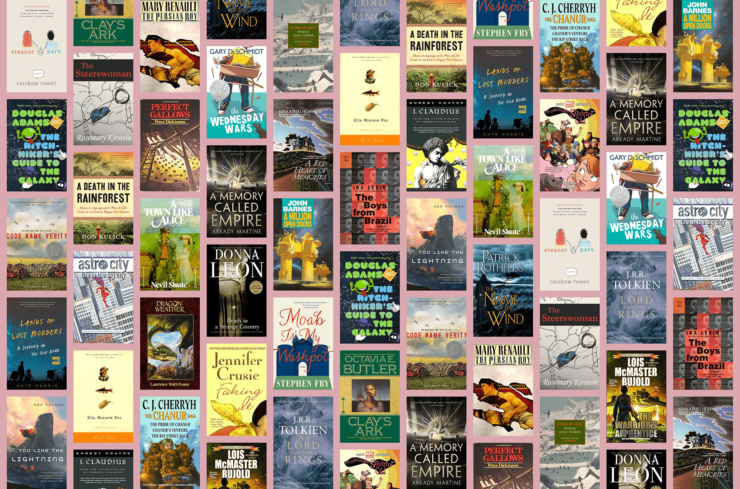
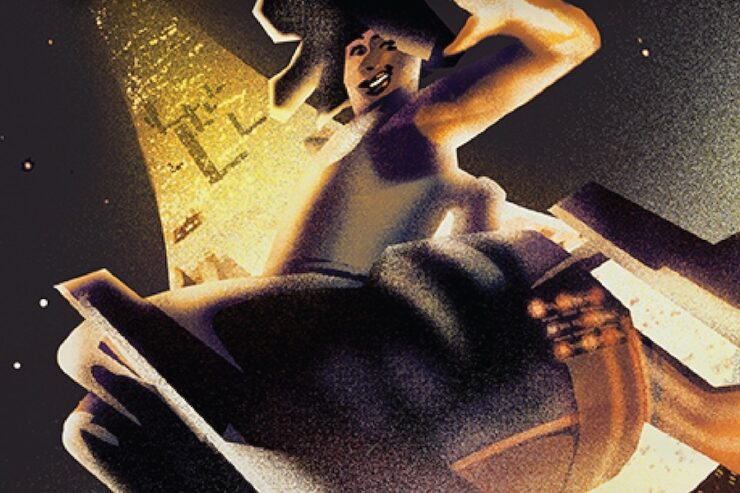
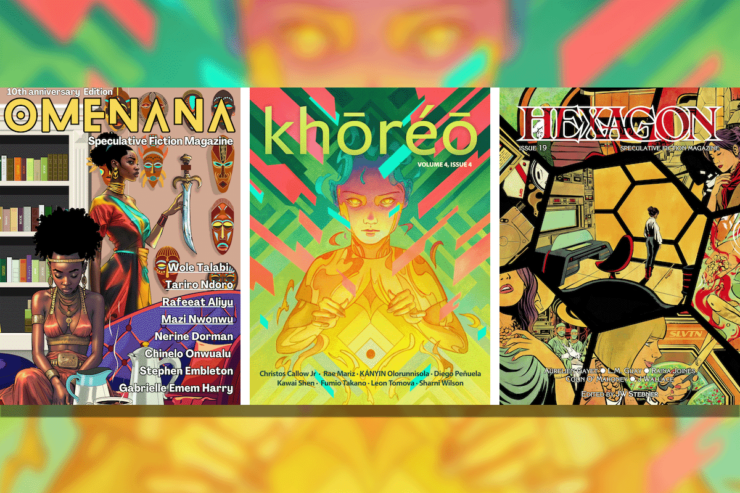
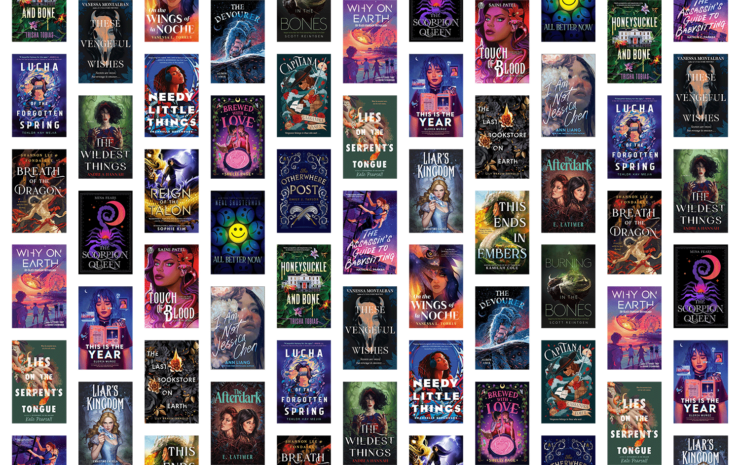
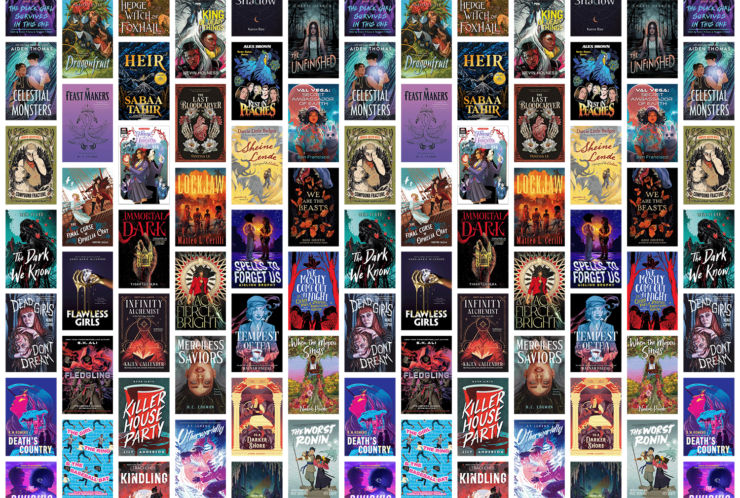
Jerry Pournelle has always grabbed me. He was a disagreeable man and I found his politics reprehensible. But boy could he write a gripping adventure tale.
Neat concept! I find grabbiness and immersiveness in a few favourite genres and topics:
• This one is pretty broad, but pretty much any kind of story where a main character turns out not to have the origins they thought they did and then have to do some real digging to figure it out (for any reason – adoption, abduction, conspiracy, mix-up, DNA enigmas, missing people, SFF changeling/AI/extraterrestrial stuff, whatever).
• Mysteries/thrillers that incorporate a lot of invented documents – pretend websites, medical reports, birth certificates, newspaper clippings, etc., especially if lightly/ambiguously SFF (Marisha Pessl’s Night Film; Sean Stewart, Jordan Weisman, and Cathy Brigg’s Cathy’s Book).
• Graphic-novel memoirs, especially ones that capture bittersweetness/ambivalence well (Jonathan Ames’s The Alcoholic, Kristen Radtke’s Imagine Wanting Only This, Tillie Walden’s Spinning, etc.).
• Memoirs/biographies of notable experiences tied to unusual events in neuroscience (Jason Padgett’s Struck by Genius, Suzanne O’Sullivan’s Brainstorm, most of Oliver Sacks, etc.). Also covers fiction if done well (Mark Salzman’s Lying Awake, Michael Redhill’s Bellevue Square).
• Novels about young adults going to an interesting boarding school or college, particularly if either a) the stakes are way higher than they thought for pretty much any reason (SFF or not), and/or b) the story goes all the way to graduation and possibly beyond. I sprinted through Curtis Sittenfeld’s Prep, Lev Grossman’s The Magicians (trying to hold off on watching the show until I’ve completed the trilogy), Caroline Stevermer’s A College of Magics, Alison Goodman’s Singing the Dogstar Blues, and Harry Potter.
• Biographies of mathematicians for the general market (okay, I understand how subjective this one is, but I’m one of those starry-eyed nerds who finds mathematics to be intellectually exhilarating) (oh, and scientists often count too, especially if they were underappreciated and/or had unlikely paths to success).
• Cryptography, and/or decipherment of ancient written languages (I recently read Andrew J. Robinson’s The Man Who Deciphered Linear B, which was riveting).
Cherryh’s Foreigner books always filled this niche for me. Whenever I had a long (transcontinental or intercontinental) flight coming up, I would put off starting the latest book in the Foreigner series that I had, so I could lose myself in it for five hours on the plane.
I just started rereading The Deed of Paksennarion — the omnibus version of the trilogy — for the umpteenth time. It has been several years since I last read it, so it’s a good time for grabby immersive comfort reading.
Though it’s going to have to go on a short hiatus, because it turned out that The Wednesday Wars was available from the library as an ebook, so I need to read that first.
As for other books, I find everything by Pamela Dean to be grabby, and also Robert Heinlein — two names one is normally unlikely to see in the same sentence.
Speaking of Ira Levin – This Perfect Day is indeed a real grabber!
Rocket men, the story of Apollo 8, the first crew to leave earth orbit, travel to the moon, and orbit the moon, and returned home safely. I don’t read much nonfiction but this was really good.
For me one of the #1 unputdownables is Sarah Monette’s Melusine, which I still owe you for introducing me to.
I still see/remember opening it to the first page in the library, which was Mildmay in his colloquial lower-class cant telling this piece of folk history about a hocus (wizard) doing something really nasty just because she can, and I was immediately hooked both by his voice and by everything the story implied about the setting. I know if I picked it up to look at that passage I’d be halfway through the book before I could stop again. I can imagine many readers being equally put off by it, and if so, the story probably isn’t for them.
Some other compelling non-fiction:
Peter Matthiesen’s The Snow Leopard which is a travelogue of his travels in the Himalayas hoping to see a snow leopard in the wild, only it’s really not about that, it’s more of a personal journal, only it’s really more obliquely about his search for enlightenment in Zen, only it’s not really that either. It takes a good writer to make something like that work, and Matthiesen is a very good writer.
In the Heart of the Sea, about the real-life whaling disaster that inspired Moby Dick and the seamen’s struggle to survive and reach land.
I haven’t read A Time of Gifts, but I found the earlier volume of Fermor’s travels through Europe Between the Woods and the Water to be very soothing reading, as I suggested for your “books where nothing bad happens.”
Douglas Adams’ other great book, Last Chance to See, a bittersweet book about traveling the world to visit with some of the most endangered animals and the people struggling to keep those creatures and species alive.
Graphic novels:
Ursula Vernon’s Digger is great and I wholly recommend it; so is Jeff Smith’s Bone, in much the same way.
Of course the Sandman series was that way for me and for a lot of people. Although the first few issues were a bit uneven in pacing and tone, I was lucky enough to pick up reading it with the 2nd collected volume The Doll’s House, where the story-telling really hit its stride, and after that I went back and caught up and then tracked along with it as the new issues came out.
For what it’s worth, I read Butler’s Parable books for the first time a couple weeks ago, and I found the little notes of grace and mutual aid throughout the post-apocalyptic hellscape oddly comforting, but that may be a peculiarity of my own psyche.
YOUNGER READERS:
CHARLIE HERNANDEZ & THE LEAGUE OF SHADOWS, Ryan Calejo. Middle school contemporary fantasy. Middle-schooler Charlie Hernandez’s parents disappear, and his house burns down. Soon, however, he develops horns which disappear, then feathers grow on his chest and arms. What is going on, and what do all the myths and folk tales of his culture have to do with it? Violet, mystery solver extraoridinarie, joins him in finding out the truth. Lots of monsters and running around ensue. The use of Hispanic/Spanish culture will certainly interest kids, and Charlie and Violet are worthy heroes.
Any series by Rick Riordan is definitely a must for younger and adult readers. Any series by Diane Duane, Eoin Colfer’s “Artemis Fowl” series. It’s much better than the movies.
Elizabeth Moon falls into this category for me – as Carbonel says.
Also Ilona Andrews for Urban Fantasy;
From Sci-Fi & Fantasy – some Mercedes Lackey books – most of Anne McCaffrey (Moreta: Dragonlady of Pern is good plague book!); L E Modesitt jr; early David Weber’s – the later ones I find hard to get into, they don’t grab me usually until the second half of the book; David Eddings – Polgara the Sorcessress drags me in every time, as does Belgareth the Sorcessor and my favourite is the Redemption of Althalus.
Crime – Dorothy L Sayers pulls me in every time, also Ellis Peters (Cadfael)
Star Trek continuations – anything by Christopher Bennett (I know he lurks around here) – especially the DTI books (love those – need another!); David Mack is another always-buy and always engrossing; from the older ones who aren’t publishing as much – Kieth Decandido has currently grabbed me with the Klingon Art of War.
Oh and mustn’t forget Nalini Singh’s Guildhunter/Archangel and Psi-Changling series – if you can ignore the romance based blurbs, they’re cracking sci-fi reads!